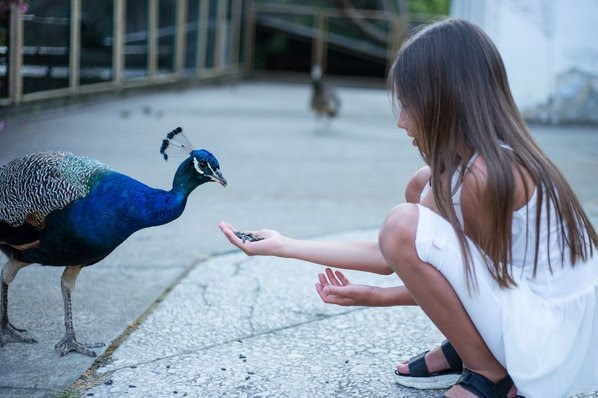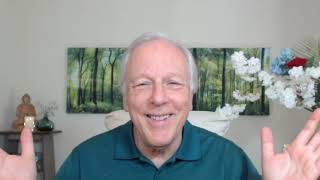How do enlightened people live? Do they renounce the world, shed their clothing, and go off to meditate in a cave? Do they write the world off as an illusion, and leave unenlightened people to suffer their bad karma? Or do they dive into the world, take care of people, and help relieve suffering in the nitty-gritty of Earth
Ramana Maharshi was a great Indian saint who experienced sudden enlightenment at age 16, which sustained for the rest of his life. He realized his true self to be God, and encouraged us to do the same. His singular teaching was to constantly inquire, “Who am I?”
In a YouTube video, “I Never Met Anyone Who Exuded Such Bliss, Robert Adam recounts his visit to Sri Ramana’s ashram. Ramana Maharshi welcomed Adams, treated him as an honored guest, and brought food to his room. The master took care of his disciples as if they were the saints. When Sri Ramana was on his deathbed, a pet peacock sat on the roof, screeching. The master’s last words were, “Has anyone fed the peacock yet?
Enlightenment does not imply escape from the world; to the contrary, it implies mastery of it. Spiritual masters do not set themselves off from humanity, but heal the world from within it. Jesus washed his disciples’ feet, teaching, “He who humbles himself shall be exalted.”
My mentor Hilda Charlton also demonstrated healing through kindness. At one of our classes, Hilda had invited a guest speaker to give the evening’s lesson. At the end of the guest’s lecture, she asked, “Where is the restroom?” Immediately Hilda rose from her teacher’s chair, guided the guest to the restroom, and provided a fresh hand towel. Out of the hundred people in the classroom, Hilda was the first to hasten to meet the guest’s needs
Avatar Meher Baba traveled around India and cared for God-intoxicants, people attached to the world by the thinnest of threads. In our society, such people would be considered mentally ill or catatonic. Yet the spiritual tradition of India reframes these individuals as absorbed in the divine. Meher Baba journeyed to tiny remote villages, bowed to these people, and washed their feet. His motto was, “mastery through servitude.”
In western culture we tend to put spiritually advanced people on pedestals and pamper them. Meanwhile they are thinking about how to unite with their students. Ramana Maharshi slept in the same house with his disciples, shared meals, took daily walks with them, and did not set himself apart from humanity. His attitude was, “We’re all in this together.”
After a certain man passed from this world, his guide opened a door to reveal a huge banquet hall with a lavish, delicious-looking feast spread before a large group of people. But the diners just stood around the table looking unhappy, even emaciated. The banquet guests held long spoons in their hands, so long that they could not get the food into their mouths. They were starving. “What is this place?” the visitor asked the guide.
“This is hell,” he answered.
“That’s horrible!” the man replied. “Please show me heaven.”
The guide opened another door, where the visitor observed a similar banquet with a group of people hovering around it. These people also held spoons longer than their arms. But they were happy, smiling, and well-fed. When the observer looked more closely, he realized that the people in heaven had learned to feed one another.
Novelist George Eliot asked, “What are we here for, if not to make each other’s lives easier?” Scotsman Ian MacLaren added, “Let us be kind to one another, for most of us are fighting a hard battle.”
Life can be a battle, but it can also be a blessing. We have the power to turn heaven to hell. We all have some peacocks we can feed.









